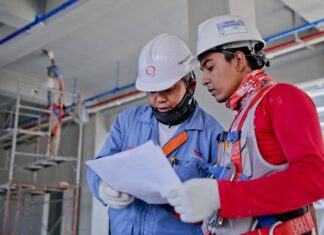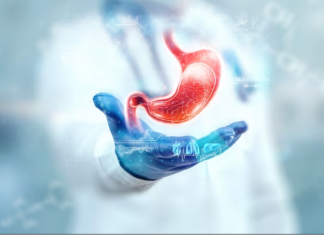What is cancer? Cancer refers to a disease characterized by the uncontrolled growth of abnormal cells in the body. These cells cross their normal boundaries and spread to other parts of the body resulting in spread, known as metastasis. Most of the deaths caused by cancer are due to metastasis.
Depending on the origin, there are two main types of cancers
- Solid Organ Tumors – E.g.: Breast Cancer, Colon Cancer
- Hematological Cancers / Blood Cancers- E.g.: Lymphoma, Leukemia
Solid-organ tumors are presented as lumps, lesions, etc., while hematological cancers don’t show any symptoms like that. Some of the general symptoms of cancer include:
- Unexplained bumps or swelling anywhere in the body
- Unexplained weight loss
- Change in bowel or bladder routine
- Persistent cough or difficulty in breathing
- Sores that don’t heal
- Color changes in the skin like yellowing, redness, etc
What causes cancer?
Table of Contents
There is no single cause for cancer. Instead, the interaction of many factors can result in cancer. The involved factors can be genetic, environmental, or lifestyle choices of the individual. Causes of childhood cancers and adult cancers vary from one another, so do the diagnosis and treatment. While childhood cancers primarily originate from the stem cells, adult cancers are generally from the epithelial cells of the surface, which turn cancerous due to the continued exposure to the risk factors over time.
A risk factor need not be the cause of cancer; it can be anything that increases a person’s chance to develop cancer. Some of the risk factors contributing to cancer are:
Genetic factors and family history
A person with a strong family history of cancer has a higher chance of developing cancer than a person who has not—the cancers with the highest genetic contribution in breast, bowel, bladder, and prostate. The genetic factors associated with the cancers are primarily due to variations in any of the following genes.
- Oncogenes that regulate the expected growth of cells
- Tumor suppressor genes recognize and interrupt the growth of abnormal cells
- Mismatch repair genes which identify errors during copying of DNA to a new cell.
These genes are responsible for controlling the number of cells in our body by forming new cells for growth and development and replacing dying cells. Any mutation or variation in these genes results in loss of balance and can lead to the development of tumors.
If you have a strong history of cancer, get a cancer screening test done and talk to your doctor about your risks. Websites such as Dcode Care, Medifee etc., provide the lists of the best cancer hospitals in Bangalore so that the patients can get opinions from senior oncologists early on. Many cancers can be prevented through regular early screening.
Environmental and occupational factors
Any substance that can cause cancer is known as a carcinogen. These are present in the environment through harmful radiation, polluting chemicals, etc.
Prolonged exposure to any carcinogen increases the risk of developing cancer. Some of the common carcinogens present around us are
- Asbestos
- Formaldehyde
- Radon
- Secondhand tobacco smoke
- Soot
- Wood dust
The increasing amount of air pollution and water pollution causes a risk for developing cancer. In addition, the toxins present in the working environment can also increase the risk significantly. Such factors are known as occupational factors. People with a specific job are likely to be exposed to a particular carcinogen, hence possessing an increased risk of developing cancer. Some of such carcinogens are:
- Cadmium and lead in batteries, paint, etc.
- Ionizing radiations from radiation machines
- Asbestos in roofing and flooring
- Arsenic in batteries
Aging
The risk of developing cancer increases as individual ages. Cancer is a chronic disease and takes a long time to establish; hence it is more common among individuals above 60 years.
Smoking
One of the most unavoidable causes of cancer is the use of tobacco. Tobacco smoke contains about 400 toxic chemicals harmful to the human body. Around 85% of lung cancers are caused due to smoking and account for approximately 30% of deaths.
The risk of cancer increases by 5% in passive smoking or secondhand smoking cases. Smokers are more likely to develop other cancers like throat, pancreas, gastric, prostate, etc.
Alcohol
All types of alcoholic drinks can cause cancer. The more you drink, the more is your risk of developing cancer. Drinking alcohol increases the risk of around seven different types of cancer like Breast cancer, bowel cancer, mouth cancer, throat cancer, liver cancer, etc.
Drinking alcohol along with smoking increases the risk of cancer significantly. Alcohol makes it easier for the harmful toxins and chemicals from tobacco smoke to enter the bloodstream through the mouth and throat.
Obesity and overweight
Obesity and overweight are the second most causes of cancer. The more weight you gain, the more is the risk of developing cancer. Research shows that excess body fat increases your risk for several cancers, including colorectal, postmenopausal breast, uterine, esophageal, kidney, and pancreatic cancers. Maintaining a healthy lifestyle and losing weight can reduce the risk of cancer and other diseases like stroke, coronary artery disease, etc.
Viruses and Bacteria
Specific infectious agents like bacteria, viruses, parasites, etc., increase cancer risk to around 18%. Most of the viruses linked to an increased risk of cancer can be transmitted from one person to another through blood or other body fluids. Some of them include
- Epstein-Barr Virus (EBV)
- Hepatitis B Virus and Hepatitis C Virus (HBV and HCV)
- Human Immunodeficiency Virus (HIV)
- Human Papillomaviruses (HPVs)
- Human T-Cell Leukemia/Lymphoma Virus Type 1 (HTLV-1)
- Kaposi Sarcoma-Associated Herpesvirus (KSHV)
What happens if I have cancer?
If you are diagnosed with cancer, do not panic. Modern medicine has developed
advanced treatments and therapies that deliver good outcomes.
If your cancer is in its early stages, the chances are that you can be fully cured of cancer with minimal treatment. However, if your cancer is diagnosed in later stages or metastatic stage (when it has spread beyond the primary site to other organs), in that case, cancer can be managed, but a complete cure is unlikely. Medical oncology offers a host of advanced therapies that deliver management of late-stage cancer while maintaining a good quality of life for the patient.
Your first chance at beating cancer is your best chance, so choose the right hospital and team for your cancer treatment.










